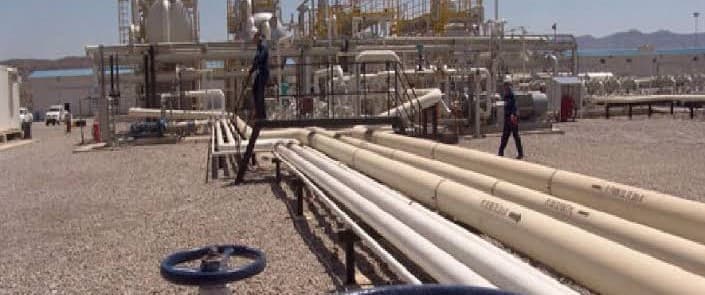Business
U.S. and U.K. Strengthen Strategic Presence in Syria and Libya

The United States and Great Britain are intensifying their strategic efforts in Syria and Libya, aiming to prevent Russia from re-establishing its influence in these critical regions. With Moscow focused on the conflict in Ukraine, Washington and London are leveraging their historical roles in the removal of leaders Muammar Gaddafi in 2011 and Bashar al-Assad in 2024 to secure a favorable position in these countries.
This strategic repositioning reflects lessons learned over the past two decades. Implementing plans for economic stability following regime changes can significantly reduce the risks of cultural and economic upheaval. Such actions also help limit the migration of affected populations to Europe, safeguard energy rights for involved nations, and counter the geopolitical ambitions of rivals like Russia and China. Notably, international oil and gas ventures are entitled to protect their assets through appropriate security measures as agreed upon with host nations.
Shifting Sanctions and Economic Revitalization in Syria
In early July, the U.S. lifted sanctions on Syria’s Ministry of Oil and Mineral Resources, the General Authority for Maritime Transport, and the country’s two main refineries. These moves followed the removal of a broader range of sanctions, including those restricting the importation of Syrian oil into the U.S. The objective is to unlock Syria’s potential in its oil and gas sector, aiming to foster a stable economy that is “unified and at peace with itself and its neighbors,” according to the sanctions removal order.
Before the outbreak of civil war in March 2011, Syria produced approximately 400,000 barrels per day of crude oil from proven reserves of 2.5 billion barrels. European nations imported over US$3 billion of oil per year from Syria prior to the war, with significant exports going to Germany, Italy, and France. Several international companies, including those from Great Britain, had a presence in Syria’s energy sector before the conflict disrupted operations.
Following the lifting of sanctions, American firms such as Baker Hughes, Hunt Energy, and Argent LNG are reportedly preparing to revitalize Syria’s energy sector. A senior source in the European Union’s security complex indicated that the initial focus will be on oil-producing areas west of the Euphrates, currently controlled by the new Syrian government. Local Middle Eastern firms are expected to collaborate with U.S. companies on power generation, with British and European firms anticipated to follow suit.
Libya’s Energy Landscape and International Involvement
A similar dynamic is unfolding in Libya, where British firms have recently taken the lead. Before the upheaval in 2011, Libya boasted a production capacity of around 1.65 million barrels per day of high-quality light crude oil. The National Oil Corporation (NOC) had envisioned enhancing production through improved recovery techniques, attracting interest from various international oil companies.
Despite the chaotic conditions that followed Gaddafi’s ousting, General Khalifa Haftar, commander of the Libyan National Army (LNA), has maintained discussions with Russian President Vladimir Putin, indicating continued Russian interest in Libya. This engagement has occurred amid reports of Libya becoming increasingly influenced by organized crime, particularly in arms smuggling.
Earlier this year, British oil giants BP and Shell signed agreements with Libya’s NOC to promote recovery in the oil and gas sectors. BP announced a memorandum of understanding on July 8 to explore redevelopment options for the Sarir and Messla onshore fields. William Lin, BP’s executive vice president for gas and low carbon, emphasized the company’s commitment to strengthening its partnership with the NOC.
Meanwhile, Shell is assessing development opportunities for the Atshan oil field. Additionally, during a recent visit from U.S. officials, a cooperation agreement was established between Mellitah Oil and Gas and U.S. consulting firm Hill International to boost Libya’s gas output, focusing on offshore fields expected to produce 750 million cubic feet per day starting in 2026.
The recent activities of international firms in both Syria and Libya signal a concerted effort to solidify influence in these geopolitically significant regions, making it increasingly difficult for Russia or China to undermine these developments.
-

 Health3 months ago
Health3 months agoNeurologist Warns Excessive Use of Supplements Can Harm Brain
-

 Health3 months ago
Health3 months agoFiona Phillips’ Husband Shares Heartfelt Update on Her Alzheimer’s Journey
-

 Science2 months ago
Science2 months agoBrian Cox Addresses Claims of Alien Probe in 3I/ATLAS Discovery
-

 Science2 months ago
Science2 months agoNASA Investigates Unusual Comet 3I/ATLAS; New Findings Emerge
-

 Science1 month ago
Science1 month agoScientists Examine 3I/ATLAS: Alien Artifact or Cosmic Oddity?
-

 Entertainment5 months ago
Entertainment5 months agoKerry Katona Discusses Future Baby Plans and Brian McFadden’s Wedding
-

 Science1 month ago
Science1 month agoNASA Investigates Speedy Object 3I/ATLAS, Sparking Speculation
-

 Entertainment4 months ago
Entertainment4 months agoEmmerdale Faces Tension as Dylan and April’s Lives Hang in the Balance
-

 World3 months ago
World3 months agoCole Palmer’s Cryptic Message to Kobbie Mainoo Following Loan Talks
-

 Science1 month ago
Science1 month agoNASA Scientists Explore Origins of 3I/ATLAS, a Fast-Moving Visitor
-

 Entertainment2 months ago
Entertainment2 months agoLewis Cope Addresses Accusations of Dance Training Advantage
-

 Entertainment3 months ago
Entertainment3 months agoMajor Cast Changes at Coronation Street: Exits and Returns in 2025









